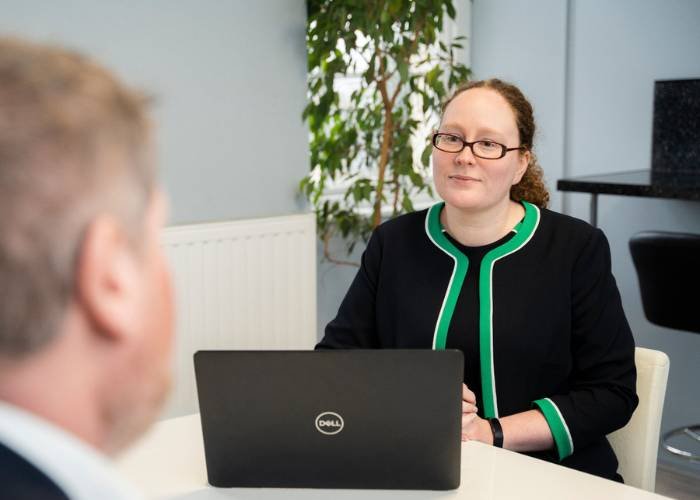Trusts Solicitors in Plymouth, Devon & Cornwall
Setting up a Trust can be one of the most effective ways to protect your assets and provide for the people you care about. Whether you’re planning for the future, helping family members, or managing property and investments, a Trust allows you to keep control over how your assets are handled, both during your lifetime and after you’ve passed away.
At Nash & Co Solicitors, our experienced Trust Solicitors work with individuals and families across Plymouth, Devon and Cornwall to make the process clear and straightforward. We’ll take the time to understand what you want to achieve, explain your options in plain English, and help you choose the type of Trust that best suits your circumstances. From straightforward arrangements to more complex family Trusts, our team will make sure everything is properly set up and managed so that your wishes are followed exactly as intended.
arrow_back Back to Wills, Trusts, Tax and Probate
Trusts can be complicated, but they don’t have to feel confusing. In simple terms, a Trust is a legal arrangement that allows one or more people (the Trustees) to look after assets such as money, property or investments on behalf of others (the Beneficiaries). It’s a way of protecting what you own and ensuring it’s used to support the people or causes that matter most to you.
Some people use a Trust to provide financial stability for children or grandchildren, while others use them to protect assets from future risks or to plan for inheritance tax. There are many different types of Trusts, each with their own rules and benefits, and choosing the right one is important.
Our team can guide you through every step, making sure you understand how your Trust works, what responsibilities are involved, and how it fits within your wider estate planning. Whether you’re setting up a new Trust, reviewing an existing one, or acting as a Trustee, we’re here to make the process as simple and stress-free as possible.
Helping you make sense of Trusts
Our related Wills, Trusts, Tax and Probate Services
What is a Trust?
A Trust is a legal structure that holds and manages assets on behalf of someone else. It allows you to set rules about how those assets are used and who benefits from them. The person creating the Trust is called the Settlor, the people managing it are the Trustees, and those who benefit are the Beneficiaries.
Trusts can take effect immediately during your lifetime or come into effect through your Will after your death. They can hold almost any type of asset, including property, investments, money, or valuable possessions.
A well-drafted Trust gives you flexibility and control, ensuring your wishes are respected and that the people you care about are supported both now and in the future.
Why set up a Trust?
Trusts can serve a wide range of purposes, and every family’s situation is different. You might want to protect assets for children until they reach a certain age, manage wealth across generations, or plan to reduce inheritance tax.
Some common reasons for setting up a Trust include:
Providing financial security for family members
Managing money or property for children or grandchildren
Supporting relatives who cannot manage finances themselves
Protecting assets from future risks or family disputes
Managing compensation payments after a personal injury or medical negligence claim
Reducing inheritance tax as part of wider estate planning
Our solicitors will help you explore the options and explain which type of Trust best suits your needs.
Common types of Trusts
There are several different types of Trusts, each serving a specific purpose. We regularly advise clients on:
Discretionary Trusts – Trustees have flexibility to decide how and when to distribute funds among Beneficiaries. These are useful for protecting assets and adapting to changing family needs.
Bare Trusts – The simplest form of Trust, often used for children. The assets are held in the child’s name and passed to them when they reach adulthood.
Interest in Possession Trusts (Life Interest Trusts) – A Beneficiary has the right to receive income from the Trust or live in a property during their lifetime, with the capital eventually passing to others.
Will Trusts – Created as part of your Will and take effect after your death. They can be useful for controlling how your estate is managed and protecting family interests.
Personal Injury and Disabled Trusts – These protect compensation payments or financial awards, allowing the Beneficiary to retain means-tested benefits while still benefiting from the funds.
Our team will help you identify which type of Trust best matches your goals and ensure it is drafted and administered correctly.
call Speak to one of our friendly Trust Solicitors on 01752 827067
Trusts & Beneficiaries
Trustees are responsible for managing the Trust’s assets and making decisions in the best interests of the Beneficiaries. They must act honestly, keep accurate records, and comply with legal and tax obligations.
Beneficiaries are the people who receive income, property, or other benefits from the Trust. In some cases, they may have a fixed entitlement; in others, the Trustees will decide how and when to distribute funds.
Choosing the right Trustees is crucial. They should be people you trust to handle money responsibly and act with integrity. We can explain what’s involved in taking on this role and provide clear guidance to help Trustees meet their legal duties.
Managing and reviewing a Trust
Once a Trust is created, it needs to be properly managed. Trustees are required to maintain accurate records, meet tax obligations, and register the Trust with HMRC through the Trust Registration Service. They must also hold regular meetings and keep minutes of their decisions.
It’s important to review a Trust regularly to ensure it still meets your goals and remains compliant with current law and tax regulations. Changes in family circumstances, financial situations, or legislation may mean that updates are needed.
Our solicitors can review existing Trusts, identify potential issues, and make sure they continue to provide the protection you intended.
How our solicitors can help
Our experienced Trusts team advises on all aspects of creating, managing, and reviewing Trusts. We provide practical, professional advice tailored to your individual situation.
We can:
Draft and set up new Trusts
Review and amend existing Trusts
Advise Trustees on their responsibilities and reporting obligations
Help with HMRC registration and tax compliance
Manage the administration or closure of a Trust when it is no longer needed
Work alongside your accountant or financial adviser to ensure everything runs smoothly
We offer fixed-fee initial consultations to help you understand your options and make confident decisions. To arrange a meeting, call 01752 827067 or email trusts@nash.co.uk.
Frequently asked questions
In this Trusts FAQ videos we delve into the frequently asked questions surrounding trusts. Whether you're seeking to secure your assets, plan for the future, or navigate the complexities of administering an estate, this video is here to provide you with valuable insights and guidance.
-
The Settlor is the person who creates the Trust and decides what goes into it. They set the rules for how those assets should be used and who should benefit.
The Trustees are the people or organisations responsible for managing the Trust. They hold and manage the assets in line with the Settlor’s wishes, making sure everything is done correctly and in the best interests of the Beneficiaries. Trustees are legally responsible for keeping proper records, filing any necessary tax returns and making fair, well-informed decisions.
The Beneficiaries are the people or groups who benefit from the Trust, which might include family members, children, charities, or others. They may receive income, have a right to live in a property, or inherit assets at a later date.
It’s possible for the same person to be both a Settlor and a Trustee, or even a Beneficiary, depending on how the Trust is structured. -
You can place almost any asset you own into a Trust. This might include:
Property or land, including your home or rental properties
Money, savings accounts, or investments
Shares, bonds, or business assets
Personal items such as jewellery, antiques, or artwork
Life insurance policies that pay out into a Trust on your death
Assets can be transferred into a Trust while you’re alive or through your Will after you die. However, once placed in a Trust, those assets legally belong to the Trust itself, not the individual, so it’s important to understand the implications. We can explain what that means in practice and help you choose the best structure for your needs.
-
Trusts can play an important role in tax and estate planning, but the rules can be complex. Some Trusts can help to reduce inheritance tax by moving assets out of your estate, while others can be used to manage capital gains tax or income tax more efficiently.
However, not every Trust is suitable for tax planning, and the wrong type of Trust could create unnecessary costs. Our solicitors work closely with clients and their accountants to ensure that any Trust is structured correctly and used in a way that benefits both you and your Beneficiaries in the long term. -
Many people are encouraged to set up an Asset Protection Trust to stop their home or savings from being used to pay for future care costs. However, these arrangements can be risky and don’t always work as people expect. Local authorities carefully assess whether assets were placed in a Trust to deliberately avoid paying for care, and if they believe that’s the case, they can still include those assets when calculating what you must contribute.
In some cases, this means the Trust offers little or no real protection, and you could face unexpected costs or complications later on. These types of Trusts are often marketed aggressively, sometimes without full disclosure of the risks involved.
It’s essential to get proper legal advice before setting up any kind of Asset Protection Trust. We’ll explain exactly how they work, when they might be appropriate, and the potential downsides, so you can make a fully informed decision with confidence.
-
Most Trusts now need to be registered with HMRC through the Trust Registration Service. This applies even if the Trust doesn’t pay tax. Trustees must ensure that the Trust is registered within the relevant deadlines and that the information held is kept up to date, particularly if Trustees or Beneficiaries change.
Failure to register or update a Trust correctly can result in penalties, so it’s vital to stay compliant. Our team can help with registration, updates and understanding your ongoing responsibilities as a Trustee.Most Trusts are now required to register with HM Revenue & Customs which means trustees must both register and keep updating the information held about the Trust.Trustees may also need to consider whether they are handling data and which General Data Protection Rules may apply to the information they are holding for the Trust administration.
-
Trusts are treated as separate entities for tax purposes, which means they may be subject to their own tax rules. Depending on the type of Trust and the assets it holds, there could be:
Inheritance Tax charges when the Trust is created or every ten years thereafter
Capital Gains Tax when Trust assets are sold
Income Tax on income generated by the Trust’s investments
Trustees are responsible for meeting all these obligations and filing any relevant tax returns. Our solicitors can explain how each type of tax may apply and help ensure you meet your responsibilities while avoiding unnecessary penalties.
-
A Trust should be reviewed regularly to ensure it still reflects your wishes and remains legally and tax compliant. We recommend reviewing it at least every few years, or whenever there’s a major life event such as a marriage, divorce, the birth of a child, or the sale of property.
Regular reviews also allow you to check that Trustees are comfortable with their responsibilities and that Beneficiaries’ needs are still being met. We can review the Trust with you and provide practical advice on any updates or changes that might be needed. -
Our Trust Solicitors can support you at every stage, from setting up a new Trust to reviewing or winding up an existing one. We’ll explain everything in clear terms, outline the costs upfront and guide you through any paperwork or registration requirements.
We also work closely with financial advisers and accountants where needed to make sure your Trust fits into your wider estate and tax planning.
Whether you’re planning for the future, managing a family Trust, or acting as a Trustee, we’ll help you make confident and informed decisions. To arrange your fixed-fee initial consultation, call 01752 827067 or email trusts@nash.co.uk.
What our clients say
Related insights
Meet the Wills, Trusts, Tax and Probate Team
Get in touch
Fill out the form below and let us know whether you would like us to call you, or email you. One of our Medical Negligence team will be in touch as soon as we can.
If your enquiry is urgent then please call us on 01752 827067.
arrow_back Back to Wills, Trusts, Tax and Probate






















